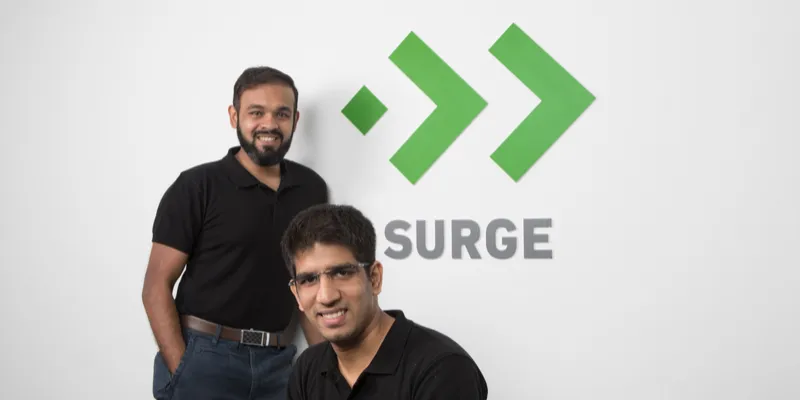Offline to become hybrid, online to turn mainstream: K-12 education in the post-COVID-19 world
Technology has played a key role in unprecedented times. But once we overcome the coronavirus pandemic, what does the future look like for India’s education system?

What does the future look like for India’s education system? [Representational image]
While the countrywide restrictions due to the coronavirus pandemic have wreaked havoc across sectors and industries in the Indian market, the shutdown of schools and institutes have propelled teachers, parents, and students to adopt the concept of remote learning with the help of technology.
A report by BARC India and Nielsen revealed that there has been a 30 percent increase in the time spent on education apps on smartphones since the lockdown. Meanwhile, a SimilarWeb survey showed that the edtech segment saw an increase in user visits by 26 percent between April 2019 and March 2020, as compared to the same period between 2018-19.
But once we overcome the outbreak, what does the future look like?
Accessible education
Speaking at a India Internet Day 2020 event organised by TiE Delhi, Bani Paintal Dhawan, Head Of Education, India And South Asia - Google Cloud India Pvt Ltd, said that she believes India is going to have a blended learning environment as, on one hand, we are adapting digital learning much faster, but kids would also need to go school for learning, sports, interaction etc. Hence, according to her, India needs long-term planning.
Adding to it, Nooraine Fazal, Managing Trustee, CEO and Co-Founder of Bengaluru-based Inventure Academy said that the time is now for changemakers to step forward and help the students. She pointed out that the students who will suffer the most in such hybrid models are those from underprivileged sections of the society. To make the future education model accessible, all stakeholders need to come together, collaborate and offer different best practices across learning communities.
But to get to that hybrid model, Bani pointed out that India needs to begin preparing now. Even though people in India have adopted digital learning, Bani said that the stakeholders in the education system need to focus on equity and access as their long-term vision. She also said that India needs to learn from the education models followed in countries like Japan and Singapore.
“The journey has begun, we need to train our teachers, and think of what skill sets we need in the longer term,” said Bani. She added that the pandemic has presented an opportunity for India to make sure that every child has access to education and ensure internet-enabled learning for every child.
She also highlighted that we need to enable ecosystems to support the vision, with steps such as enabling teachers, having the right set of scalable technologies, as well as equitable access to education.
“This will also encourage startups in India to invest in and participate, so we need to have an open ecosystem to encourage more innovations,” said Bani.

Panelists spoke on 'Making Great K-12 Education Accessible' during India Internet Day 2020 event organised by TiE Delhi
One size does not fit all
Arunprasad Durairaj, Co-founder and CEO, pointed out that in pre-school education, the future will depend on government policies.
Flinto is a Chennai-based startup focusing on early childhood development for children aged 2-12.
“What applies to the rest of the age groups will not apply to this age group. So, post-COVID-19, there can be a lot of chaos,” he warned.
To ease the pressure in the segment, Arunprasad said that both the place of work and the place of childcare should come together. This, he said, can be done if the government implements the Maternity Bill well.
Supplementary education
Mukul Rustagi, Co-founder of , a Noida-based mobile-first SaaS platform that enables private coaching institutes and tutors to streamline their content distribution, payments, communication, and online assessments, said that COVID-19 has offered a massive opportunity for edtech players.
"But more than the size of the opportunity, I am more motivated by the significance of the opportunity because, like in this country, supplemental education is often taken as at par with any other kind of institutionalised education,” he said.
In this respect, he pointed out that the pandemic has been a complete game-changer with institutes moving online.
“As compared to earlier, teachers are learning different finer aspects of teaching. For example, content delivery in an online space, remote monitoring, and giving that classroom experience an online format,” Mukul said.
He added that these are a lot of behavioural shifts that are needed to supplement the next generation education, and this is the opportunity for the stakeholders in this space.
He enumerated that ClassPlus has marked a five-six fold growth in just the last six months. Mukul asserts that it is time for the industry to set trends, as when the pandemic gets over, everyone would need to figure out what’s next, and they will follow what their peers are doing. So, this is an opportunity for the industry to set vision from this stage itself.

(L-R) Bhaswat Agarwal and Mukul Rustagi, Co-founders, Classplus
Edtech is hotspot
Varun Gupta of Avendus Capital said that close to $1 million in funding has been attracted by edtech players in India in the last seven months. Interestingly, most of it happened pre-COVID-19, which, as Varun pointed, means that digital learning had started before the outbreak. However, the pace and focus have now been picked up. He also asserted that this is one of the best times for the investors to invest in the edtech space.
Breaking down the investment pattern, Varun said that 85 percent of this funding is marked for after-school supplementary education in the K-12 space. Going ahead, he opined that while physical schools will resume, the role of technology will change. In the post-COVID-19 world, he predicted that education will become more experiential and hybrid.
“Our schools are going to use experiential learning, tech-based assessments, and online assessments instead of periodic class tests. And the digital assessment will give a clearer picture of student’s strength areas and weak areas,” he said. He added that offline players will increasingly become more hybrid, and digital players will increasingly become mainstream.
According to a study by Ken Research, India’s online education market is growing at more than 20 percent annually, and is expected to reach $2 billion in size by 2021. The sector continues to be buoyed by rapid technology penetration and non-uniformity of quality education systems in the country.
Edited by Kanishk Singh





![[Startup Bharat] Satna-based BharatClass enables classroom teachers to set up virtual institutions in 30 secs](https://images.yourstory.com/cs/2/3fb20ae02dc911e9af58c17e6cc3d915/collage1-1596721721972.png?fm=png&auto=format&h=100&w=100&crop=entropy&fit=crop)




